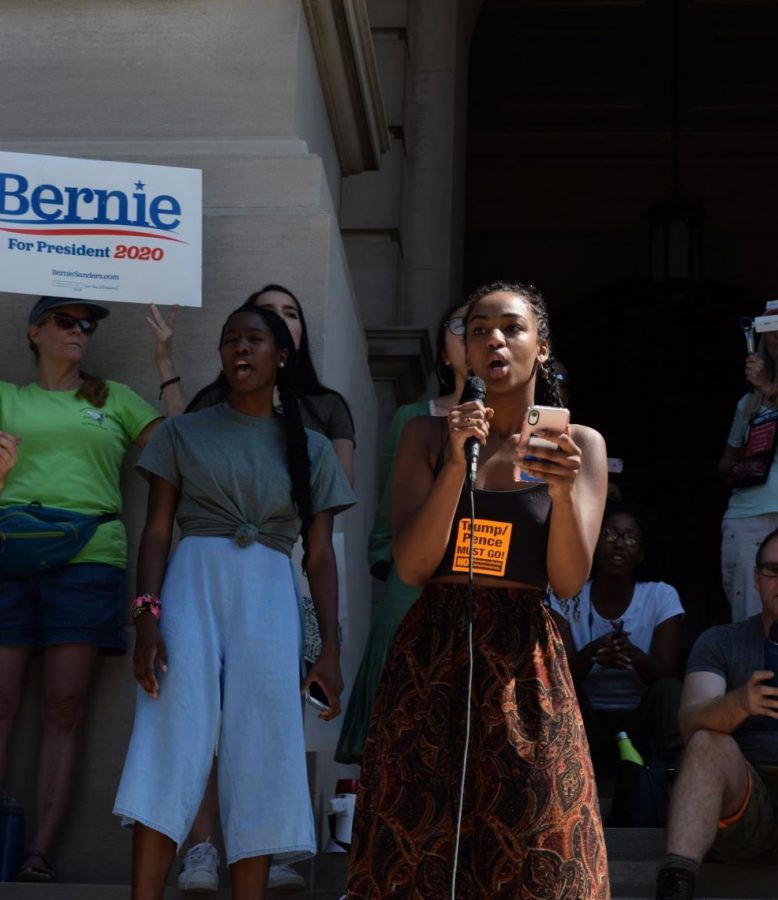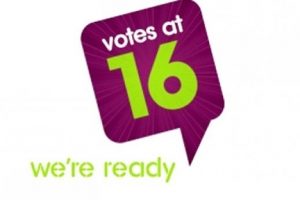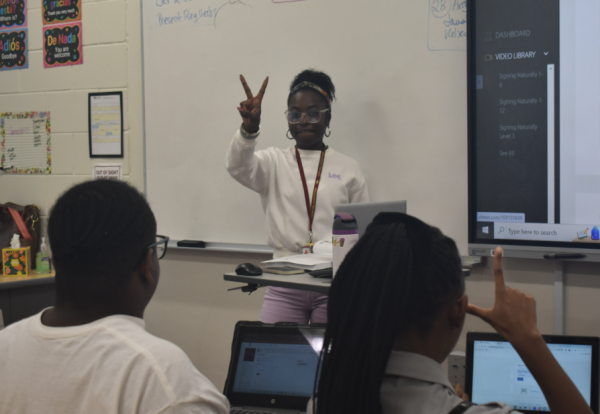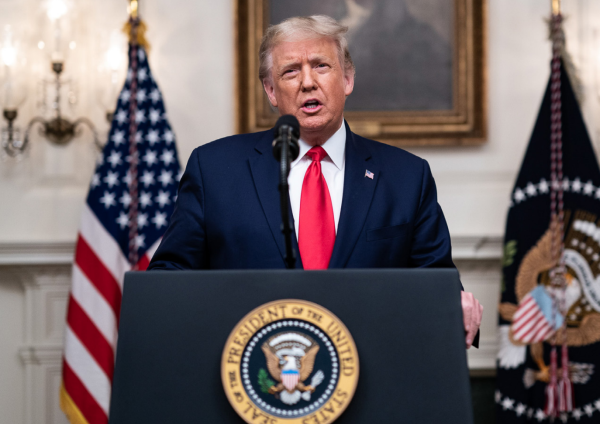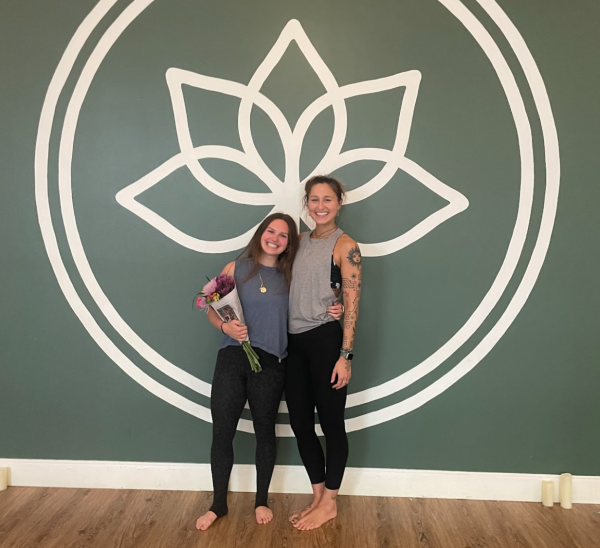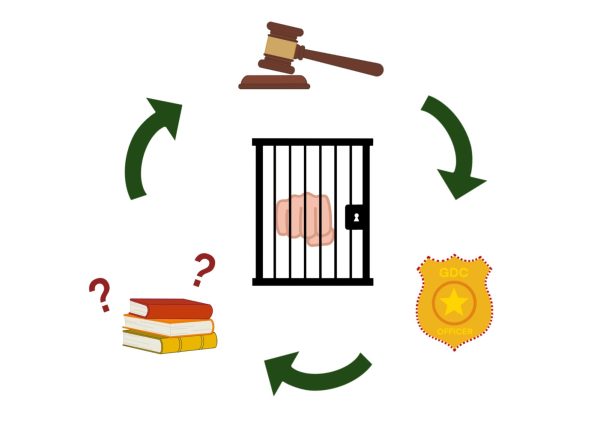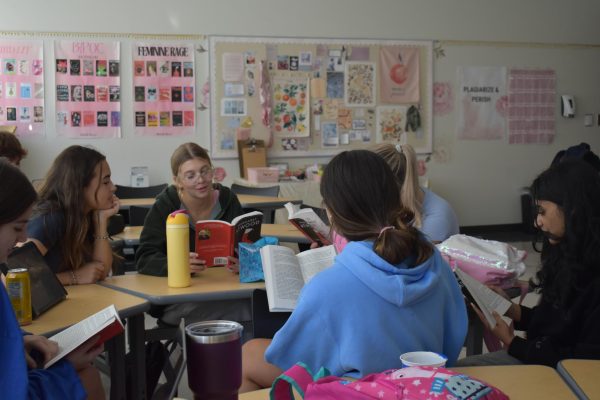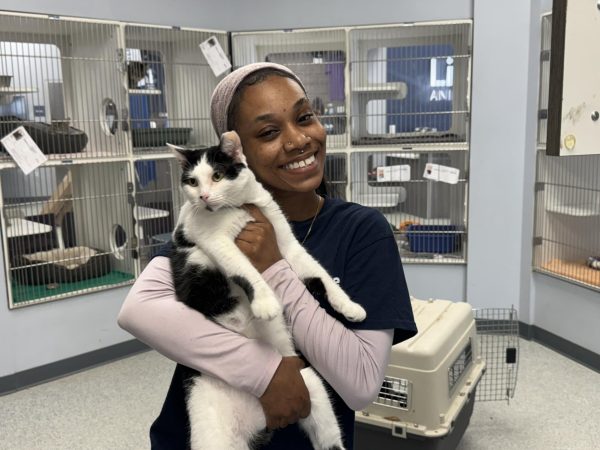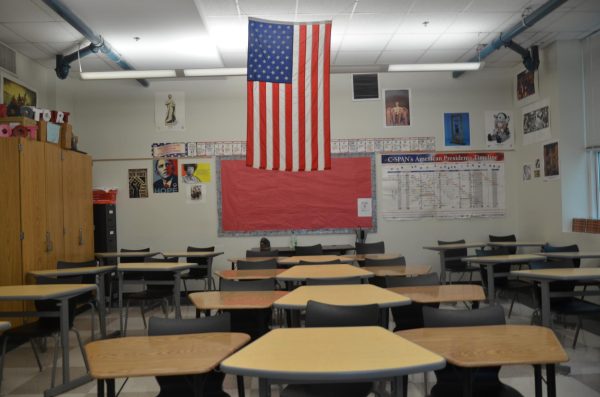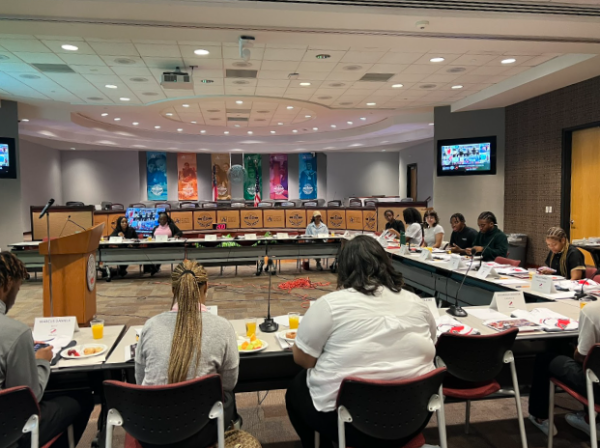First-time voters a key demographic in 2020 Presidential Election
LEADING THE FIGHT: Zeena Abdulkarim, one of the student organizers of the the Sept. 20 Climate Change rally at the Georgia State Capitol speaks to attendees. Abdulkarim organized the strike with other students from local schools.
Next November, people around the country will head to the polls to cast their ballots for the next president, and for many current students, this important election will be their first time voting. With a recent increase in youth activism and political engagement, these first-time voters are expected to have a major impact.
“I think both parties are beginning to see the importance because it’s such a large voting block, and they’re going to have to earn the vote of young people if they want to win,” said Rachel Paule, president of the Young Democrats of Georgia.
Senior Christian Lubsey is one of the young voters that candidates will seek to sway. Lubsey says he plans to vote for the first time in 2020 and is already following the Democratic Presidential Primary.
“Young people are soon going to be the people who are running the world,” Lubsey said. “I think it’s a big impact for the next generation to voice their opinions and bring on the change that’s important in the world.”
Candidates are already making efforts to attract young voters like Lubsey. According to Paule, these efforts include innovative digital strategies that are meant to appeal to young people.
“Lots of presidential candidates have separate social media accounts for their dogs,” Paule said. “They use their dogs to promote their agenda because they’re looking for those new creative ways to connect.”
While some candidates rely on social media and pop culture references to attract teens, others, such as congressional candidate William Haston, hope to win over young voters by highlighting the issues important to them. A Democrat running in Georgia’s Fourth Congressional District, Haston is campaigning on policies such as the Green New Deal, tuition-free college and the legalization of marijuana. He believes his progressive agenda will appeal to first-time voters.
“More so than ever, it is young people who are taking up the mantle and fixing our problems, and that’s awesome,” Haston said. “Giving those people something to be excited about that makes them run to the polls … is the goal of our campaign.”
According to social studies teacher Chris Rhodenbaugh, this excitement is already becoming noticeable among students. He says his classes often consist of fruitful discussion about current affairs, and he has witnessed more youth becoming involved in social activism.
“There’s a real shift happening with organizing beginning at the high school level,” Rhodenbaugh said. “Never before have there been as many people interested and involved and as many organizations who are actively seeking the input of high school students. It’s a really important and exciting time to be a high school student in the United States.”
Rhodenbaugh, who previously worked as a political organizer, attributes much of this engagement to youth who have emerged as prominent leaders on social issues, including Swedish climate activist Greta Thunberg and students from Marjory Stoneman Douglas High School, who founded the March for Our Lives.
These youth and the movements they lead are already taking center stage in the 2020 Democratic primary. Last month, 10 candidates appeared at a forum sponsored by March for Our Lives in Las Vegas, Nevada. Those in attendance, including Vice President Joe Biden and Senator Kamala Harris, called for sweeping gun reform laws, including an assault weapons ban and universal background checks, policies with widespread support amongst young voters.
“Something I’ve seen a lot of is more focus on college campuses, common-sense gun regulations and voter registration,” Paule said.
Paule believes that in order to attract young voters, candidates need to “reach out and listen and let them lead.”
Haston, who is seeking to do just that, says the political climate now is different from when he cast his first ballot and increased passion among youth voters is one reason.
“My first vote was 2004, and things were completely different,” Haston said. “People were not as engaged. People were not as knowledgeable as they are now … I’m so excited that we have an entire generation of young people that are gonna be first time voters this time that are informed, that are passionate and that are chomping at the bit to get into the ballot box.”
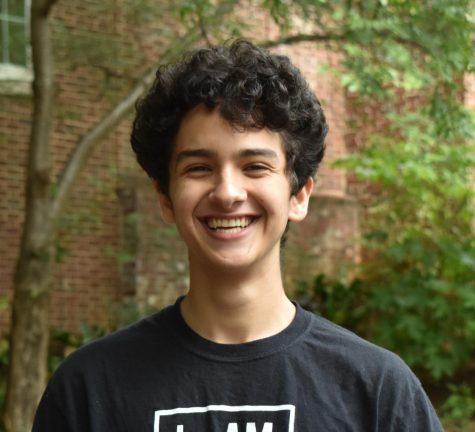
Royce is a Senior in his second year at Grady. He is a member of the Grady Governance Team and is the President of Amnesty International Club.


